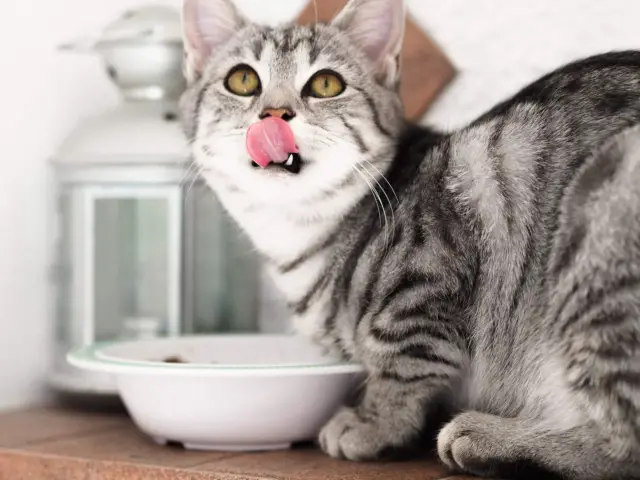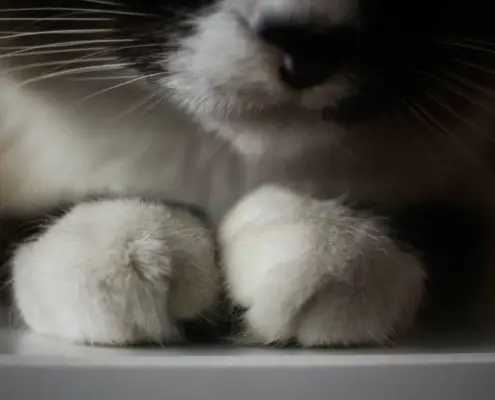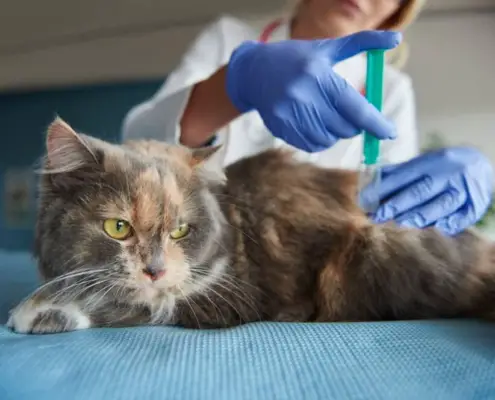
Cats are known for their discerning taste, and as a responsible pet owner, it is crucial to provide them with the right nutrition. Cat foods play a significant role in meeting their dietary needs and ensuring their overall health and well-being. With a plethora of options available in the market, it can be overwhelming to choose the right one for your feline friend. In this comprehensive guide, we will explore the different types of cat foods, their pros and cons, and help you make an informed decision.
Understanding the Nutritional Needs of Cats
Before delving into the types of cat foods, it is important to understand the unique nutritional needs of cats. Unlike humans or dogs, cats are obligate carnivores, which means they require a diet predominantly consisting of animal-based proteins. Protein is vital for their muscle development and maintenance. Additionally, cats require specific nutrients like taurine, arachidonic acid, and vitamin A, which are found mainly in animal tissues. Understanding these nutritional requirements will help you choose the right cat food that meets your feline friend’s needs.
Types of Cat Foods Available in the Market
- Dry Cat Food: Pros and Cons
Dry cat food, also known as kibble, is one of the most common types of cat food available in the market. It offers convenience and a longer shelf life compared to other options. Dry cat food is often formulated to promote dental health, as the crunchy texture can help reduce tartar buildup. However, it is essential to note that cats have a low thirst drive, and relying solely on dry food may not provide them with adequate hydration. Additionally, some dry cat foods may contain fillers and artificial additives, so it is crucial to read the labels carefully.
- Wet Cat Food: Pros and Cons
Wet cat food, also known as canned cat food, is another popular choice among cat owners. It has a higher moisture content, which helps cats stay hydrated. Wet cat food also tends to be more palatable for cats due to its soft texture and stronger aroma. However, it can be more expensive than dry cat food and has a shorter shelf life once opened. It is important to store opened cans properly and avoid leaving wet food out for extended periods to prevent bacterial growth.
- Raw Cat Food: Pros and Cons
Raw cat food, often referred to as a “raw diet” or “BARF” (Biologically Appropriate Raw Food), consists of uncooked meat, bones, and organs. Proponents of raw feeding argue that it mimics a cat’s natural diet and provides optimal nutrition. However, there are several considerations and risks associated with raw cat food, such as the potential for bacterial contamination and nutritional imbalances. It is crucial to consult with a veterinarian and follow appropriate food safety guidelines if choosing to feed your cat a raw diet.
- Homemade Cat Food: Pros and Cons
Some cat owners prefer to prepare homemade cat food to have complete control over the ingredients and ensure their cat’s specific dietary needs are met. Homemade cat food can be tailored to individual cats, taking into account any allergies or sensitivities they may have. However, it requires careful planning, knowledge of feline nutrition, and consultation with a veterinarian or veterinary nutritionist. It is important to strike a balance and ensure that homemade cat food provides all the necessary nutrients in the right proportions.
Choosing the Right Cat Food for Your Feline Friend
With an abundance of cat food options available, choosing the right one for your feline friend can be a daunting task. Here are some essential factors to consider:
Reading Cat Food Labels: What to Look For
When selecting cat food, it is crucial to read and understand the labels. Look for the following:
- Association of American Feed Control Officials (AAFCO) or European Pet Food Industry Federation (FEDIAF) Statement: Check if the food is formulated to meet the nutritional standards set by the Association of American Feed Control Officials (AAFCO) or European Pet Food Industry Federation (FEDIAF).
- Protein Source: Ensure that the primary protein source is animal-based, such as chicken, turkey, or fish.
- No Artificial Additives: Avoid cat foods that contain artificial preservatives, colors, or flavors.
- Balanced Nutrition: Look for a well-balanced cat food that provides all the necessary nutrients in the right proportions.
Common Cat Food Ingredients to Avoid
Certain ingredients in cat food may not be suitable for your feline friend. Avoid cat foods that contain:
- Fillers: Look out for ingredients like corn, wheat, and soy, which provide little nutritional value and are often used as fillers.
- By-products: While some by-products can be nutritious, it is important to ensure that they are of high quality and not of questionable origin.
- Artificial Additives: Artificial preservatives, colors, and flavors can potentially harm your cat’s health in the long run.
Transitioning Your Cat to a New Diet
When introducing a new cat food, it is essential to do so gradually to avoid digestive upset. Start by mixing a small portion of the new food with the current food and gradually increase the proportion over a week or two. Monitor your cat’s response to the new diet and consult with a veterinarian if any issues arise.
Special Dietary Considerations for Cats with Health Issues
Cats with certain health issues, such as allergies, urinary tract problems, or kidney disease, may require special dietary considerations. It is crucial to work closely with a veterinarian to develop a tailored diet plan that addresses your cat’s specific needs.
Cat Food Brands to Consider
While there are numerous cat food brands available, here are a few reputable options worth considering:
- Royal Canin: Known for their high-quality ingredients and balanced nutrition, Royal Canin offers a range of cat food options suitable for different life stages.
- Purina Beyond: With a focus on natural and organic ingredients, Purina Beyond provides cat foods free from artificial additives and fillers.
- Hill’s Pet Nutrition: Specializing in specialized diets, Hill’s Pet Nutrition offers a variety of cat food options tailored to cats with specific health conditions.
Conclusion
Choosing the right cat food for your feline friend is a crucial decision that can significantly impact their overall health and well-being. Understanding the nutritional needs of cats and the different types of cat foods available will help you make an informed choice. Whether you opt for dry cat food, wet cat food, raw cat food, or homemade cat food, it is essential to prioritize quality ingredients and balanced nutrition. Consult with a veterinarian to address any specific dietary considerations your cat may have. Remember, providing your cat with a nutritious diet is one of the best ways to ensure they lead a happy and healthy life.
Consult with your veterinarian to determine the best cat food for your feline friend’s specific needs. They can provide personalized recommendations based on your cat’s age, health condition, and dietary requirements.
If you enjoyed my article, I would appreciate you sharing it with your network.

Sima Ndlebe
Sima writes for CatBuzz. He is interested in Cats, Health and Fitness, and Entrepreneurship.
Published: 13 October 2023
Related Articles
Disclaimer
The content found on CatBuzz.org is presented on an "as is" basis and is intended for general consumer information and education purposes only. Any utilization of this information is voluntary and solely at the user's own risk.
None of the articles or content should be regarded as, or used in place of, veterinary medical advice, diagnosis, or treatment. The information provided on the website is purely for educational and informational intentions and should not be considered a substitute for professional guidance from a veterinarian or other qualified expert. The articles are designed to inform consumers about veterinary healthcare and medical matters that may impact their cat's daily life. It should be noted that this website and its services do not constitute the practice of any form of veterinary medical advice, diagnosis, or treatment. CatBuzz.org explicitly disclaims any liability for any direct or indirect damages or losses that may arise from the use of or reliance on the information contained within the content.
Consumers must consult a veterinarian, veterinary specialist, or another qualified veterinary healthcare provider when seeking advice regarding their cat's health or medical conditions. It is important not to ignore, avoid, or postpone seeking medical advice from a veterinarian or other qualified veterinary healthcare provider solely based on information obtained from this website. If you believe that your cat may be experiencing a medical issue or condition, it is imperative to promptly contact a qualified veterinary healthcare professional.




